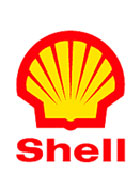The Shell Petroleum Development Co. -- a joint venture among several companies including Nigerian National Petroleum Company, Total SA and Eni SpA -- lost 137,000 barrels per day in production when a valve on the trans-Nigerian pipeline in southern Nigeria was attacked.
The attack prompted Shell to call for a force majeure on exports for the time being, Shell officials said.
"We"ll be looking to restore operations here and across the Niger Delta ... however obviously safety is a major concern," a Shell spokesman in London told United Press International Wednesday. Shell and other foreign operations in Nigeria have been at the recent center of a firestorm in the oil-rich and violent West African country. Not only have their operations been targeted by militant groups, the Nigerian government has cast a suspicious eye toward their operations in the delta.
In March, Nigerian energy officials accused Shell and four other foreign firms of illegally transporting and dumping radioactive material in the Niger Delta. Officials with the International Atomic Energy Agency -- the Vienna-based nuclear watchdog for the United Nations -- speculated that the radioactive material transported by the companies was being used for well logging, a process whereby radioactive material is lowered into an exploratory well to test for hydrocarbons.
Shell officials denied the accusations, though they did acknowledge in March that some equipment for drilling being transported through the region using radioactive material has gone missing and that the company was making a "concerted effort to trace the alleged missing tools." Foreign firms" major concern in Nigeria, however, remains attacks and kidnapping of foreign workers in the delta.
Earlier this month, four American workers on a subcontract job for Chevron Corp. were kidnapped while working on an offshore installation.
On Tuesday, a militant group calling itself Egbema 1 claimed responsibility for the capture of the workers. Local officials are believed to be working to negotiate their release, according to local media reports.
Initially, the U.S. workers were believed to have been taken hostage by Nigeria"s leading armed militant group, the Movement for the Emancipation of the Niger Delta.
MEND, along with other lesser-known militant groups, has called for more equitable distribution of Nigeria"s oil wealth, particularly in the delta, where despite the generation of billions of dollars in oil revenue every year, the majority of people remain impoverished.
Since the 1970s, Nigeria, Africa"s No. 1 oil producer, has pumped more than $300 billion worth of crude from the southern delta states, according to estimates.
High unemployment in the delta, environmental degradation due to oil and gas extraction, and a lack of basic resources such as fresh water and electricity have angered the region"s youth, who have taken up arms, many times supplied by political leaders.
Militants have vowed to step up attacks until May 29 when President-election Alhaji Umar Musa Yar"Adua is scheduled to take over from Olusegun Obasanjo, who MEND says has facilitated corrupt government officials who spent the past eight years pilfering state coffers awash with petrodollars.
Meanwhile, even Yar"Adua"s own vice president-elect isn"t immune from violence in the delta. Jonathan Goodluck"s summer home was attacked and destroyed by unknown gunmen in Bayelsa State.
Many Nigerians blame the vast economic divide between the country"s haves and have-nots for the continuing violence.
"If the elite of the Niger Delta spare some time from their boardrooms, banks, industrial complexes and law firms to strategize on peaceful methods of developing the region, the rattle of gunfire that punctuates peace and threaten the security of lives in the region will be a thing of the past," wrote John Owubokiri for Nigeria " s Vanguard newspaper.
PIN/UPI


Your Comment